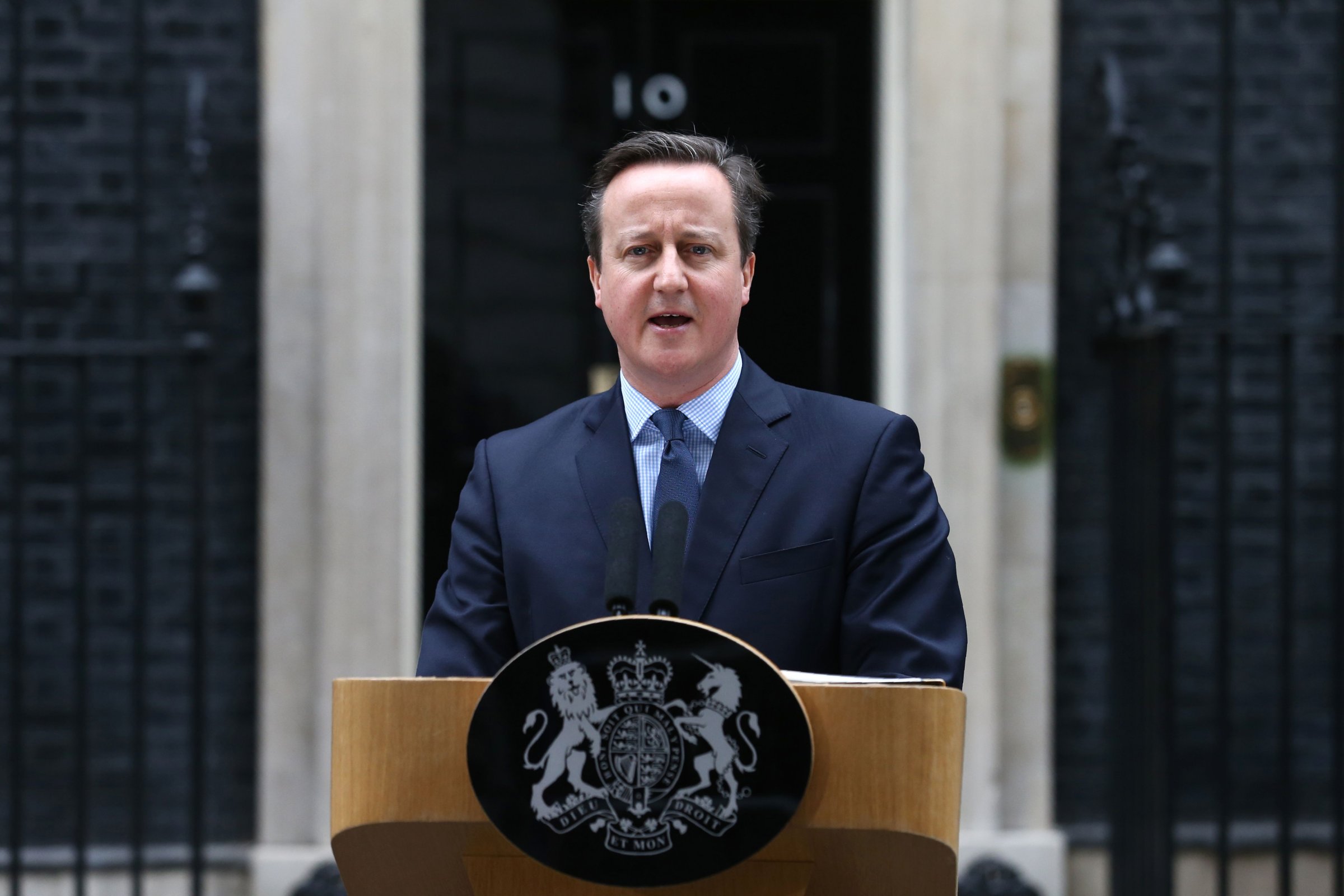
Anyone who has been following the storm of negotiations preceding Britain’s referendum on leaving the E.U. could be forgiven if they find their eyelids drooping from time to time.
It’s difficult to describe the particulars of British Prime Minister David Cameron’s settlement with the European Union without lapsing into legalese, and the dizzying cast of diplomats and bureaucrats involved are big names only in Brussels, the Belgian city that hosts the E.U.
Suffice it to say David Cameron now has a package of reforms to present to the British people as reason to vote to remain in the gang of 28 nations on June 23. The deal, he said Saturday, will bring “more jobs, lower prices and greater security” to a Britain that remains within the E.U.
Some consider the settlement the best he could do under the circumstances. Others have already compared it to a piece of excrement that Cameron will attempt to buff to a dull shine. But what should be clear is that the substance of these reforms will have little, if any, impact on whether Britons vote to stay in the union or to go.
That’s because European membership is chiefly an emotive and not an intellectual argument. When I lived in Ireland in 2001, the Treaty of Nice—a minor amendment to the major Maastricht Treaty that made it easier for the bloc to expand eastwards in the aftermath of the Cold War—was put to a popular vote in the republic. Ireland was the only E.U. member state to require a popular referendum rather than a simple parliamentary vote, for reasons best understood by Irish constitutional lawyers.
Few Irish really knew what they were voting for or against, but even in this broadly pro-European country, it became a heated battle of identity politics. The question was not about the facts of Nice but about handing sovereignty to Brussels, and more broadly about trust in the political establishment, who assumed the Irish electorate would obediently vote yes and move on.
They did not. Some of the less scrupulous campaigners for the ‘No’ vote seized upon the idea of closer co-operation within the E.U. as cover for the creation of a sinister Euro-army. Ubiquitous posters showed a woman clutching a baby to her chest with the caption ‘DON’T MAKE HIM FIGHT’ — as if villainous Eurocrats were planning to dispatch battalions of Irish toddlers to invade Russia, or whoever else was standing in the way of European domination.
Thanks in part to this kind of fearmongering, the expansion of Europe was halted in its tracks by Irish voters. The red-faced Irish government was forced to call a second referendum the following year on the same treaty—tweaked slightly to give Ireland an exemption from joint E.U. defense policy—which passed only after a lengthy, and bitterly-fought campaign by the government.
If Britain votes to leave the E.U. there will be no such second attempts, and so the campaign set to kick off next week will be at least as bitterly fought. Some interest groups will try to appeal to Britons’ good sense, pointing to the numerous studies showing the unpredictable damage ‘Brexit’ could do to the economy and the country’s international standing.
Others, however, will target the reliable demographic of little Englanders distrustful of bureaucracy in general, portraying Europe as a burglar of jobs that has bound up the British economy in red tape for too long. There will be scare stories in the decidedly anti-Europe press about Slovenian or Romanian families with dozens of children living in mansions funded by the British taxpayer. It’s not difficult to see which approach will have more success.
Cameron, who favors remaining in the E.U. under the more favorable terms of his settlement, will no doubt point to what he has achieved in Brussels as he campaigns against ‘Brexit.’ But he’ll need to come up with an argument that speaks to Britain’s heart, as well as to its brains.
More Must-Reads From TIME
- Dua Lipa Manifested All of This
- Exclusive: Google Workers Revolt Over $1.2 Billion Contract With Israel
- Stop Looking for Your Forever Home
- The Sympathizer Counters 50 Years of Hollywood Vietnam War Narratives
- The Bliss of Seeing the Eclipse From Cleveland
- Hormonal Birth Control Doesn’t Deserve Its Bad Reputation
- The Best TV Shows to Watch on Peacock
- Want Weekly Recs on What to Watch, Read, and More? Sign Up for Worth Your Time
Contact us at letters@time.com